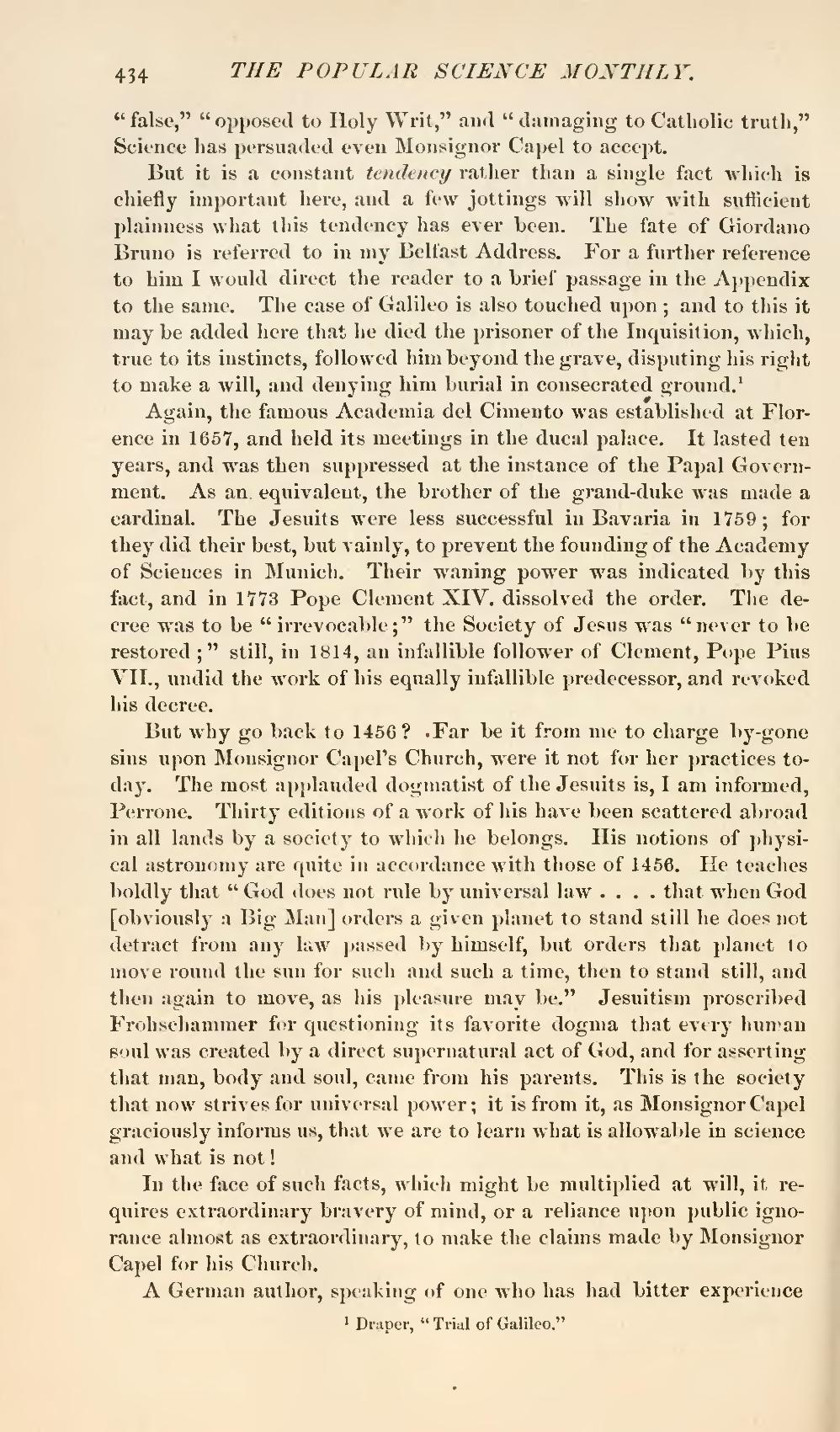"false," "opposed to Holy Writ," and "damaging to Catholic truth," Science has persuaded even Monsignor Capel to accept.
But it is a constant tendency rather than a single fact which is chiefly important here, and a few jottings will show with sufficient plainness what this tendency has ever been. The fate of Giordano Bruno is referred to in my Belfast Address. For a further reference to him I would direct the reader to a brief passage in the Appendix to the same. The case of Galileo is also touched upon; and to this it may be added here that he died the prisoner of the Inquisition, which, true to its instincts, followed him beyond the grave, disputing his right to make a will, and denying him burial in consecrated ground.[1]
Again, the famous Academia del Cimento was established at Florence in 1657, and held its meetings in the ducal palace. It lasted ten years, and was then suppressed at the instance of the Papal Government. As an. equivalent, the brother of the grand-duke was made a cardinal. The Jesuits were less successful in Bavaria in 1759; for they did their best, but vainly, to prevent the founding of the Academy of Sciences in Munich. Their waning power was indicated by this fact, and in 1773 Pope Clement XIV. dissolved the order. The decree was to be "irrevocable;" the Society of Jesus was "never to be restored;" still, in 1814, an infallible follower of Clement, Pope Pius VII., undid the work of his equally infallible predecessor, and revoked his decree.
But why go back to 1456? Far be it from me to charge by-gone sins upon Monsignor Capel's Church, were it not for her practices today. The most applauded dogmatist of the Jesuits is, I am informed, Perrone. Thirty editions of a work of his have been scattered abroad in all lands by a society to which he belongs. His notions of physical astronomy are quite in accordance with those of 1456. He teaches boldly that "God does not rule by universal law.... that when God [obviously a Big Man] orders a given planet to stand still he does not detract from any law passed by himself, but orders that planet to move round the sun for such and such a time, then to stand still, and then again to move, as his pleasure may be." Jesuitism proscribed Frohschammer for questioning its favorite dogma that every human soul was created by a direct supernatural act of God, and for asserting that man, body and soul, came from his parents. This is the society that now strives for universal power; it is from it, as Monsignor Capel graciously informs us, that we are to learn what is allowable in science and what is not!
In the face of such facts, which might be multiplied at will, it requires extraordinary bravery of mind, or a reliance upon public ignorance almost as extraordinary, to make the claims made by Monsignor Capel for his Church.
A German author, speaking of one who has had bitter experience
- ↑ Draper, "Trial of Galileo."

